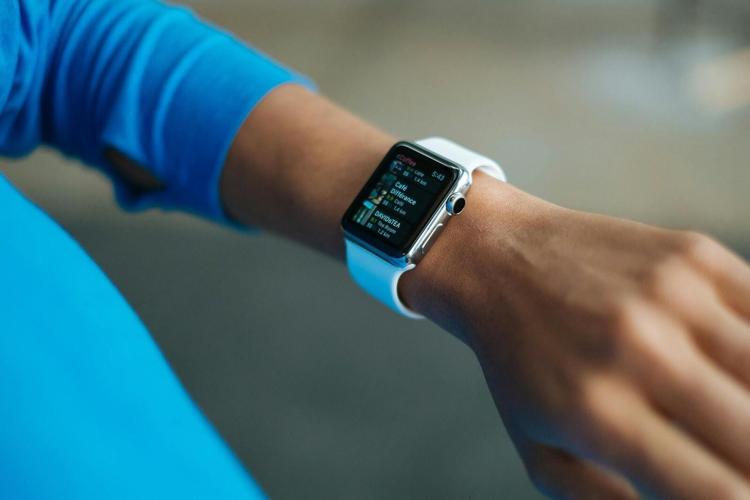
Instead of doom-scrolling on X for hour after hour, wouldn’t it be nice if you could use the tech you possess to enhance your life and make you the best human you can be? Well, you know what? You can do that by using technology to boost your brain power. Here’s how:
Virtual Reality: Escape the Mundane, Train Your Brain
Some of us are still thinking of virtual reality as some amazing, futuristic thing, but you know what? It’s very much here, and it can absolutely be used to make you smarter.
Imagine popping on a headset, picking a puzzle-based game that forces you to twist and turn shapes to fit impossible spaces, and soon you’re working out your spatial awareness, problem-solving skills, and reflexes. And yes, you might look like a flailing octopus while you do it, but the payoff is worth the embarrassment. One minute you’re “virtually” climbing Mount Everest while trying to solve a puzzle that’ll keep you from falling off a digital cliff, and the next you realize you’ve spent an hour teaching your brain how to adapt under stress and engage in complex motor tasks. It’s like a workout for your mind—minus the sweaty treadmill, plus the possibility of having your dog stare at you like you’ve lost your marbles.
But the best part? VR experiences can expand your worldview. For instance, you can explore ancient ruins in the comfort of your living room and learn about the history of civilizations, all while engaged in a hands-on puzzle that’s slowly making your brain sharper. It’s a dynamic way to learn that’s more immersive than any textbook or standard video. Of course, the downside is that your friend might record you stumbling around your living room and post it for the entire internet to see, but hey, that’s a small price to pay for genius-level brain gains.
Brain Training Apps: There’s an App for That
Remember when the app store was shiny and new, and every single software developer decided to market some sort of “brain-training” app that promised to turn you into an Einstein-level prodigy? Yeah, half of those were likely just digital sudoku knockoffs—but guess what? Sudoku is actually pretty good for your brain. Let’s not knock it, because any puzzle that makes you focus is basically mental push-ups.
However, today’s generation of apps has taken it a step further. We now have programs that analyze your performance over time, adjust the difficulty in real-time, and even provide detailed statistics on what parts of your cognition are improving. Some offer short daily exercises designed to enhance memory, attention span, and problem-solving. Sure, the jury’s out on whether these apps will make you a rocket scientist, but any form of consistent mental challenge is going to keep you on your toes.
The trick is not to treat these apps like your typical phone game. Think of them more like gym sessions for your brain. Instead of counting reps with dumbbells, you’re counting how many sequences of numbers you can memorize before the clock runs out. If you’re the competitive type, there’s a good chance you’ll want to beat your previous high score. Next thing you know, your memory’s sharper, and you haven’t had to slog through a single dense textbook.
Digital Journaling: Type Your Way to a Bigger Brain
Yes, journaling is old-school, but it’s undergone a digital transformation that can actually make you more mindful, reflective, and—dare I say—smarter. Handwriting purists might insist there’s no substitute for the tactile experience of pen on paper, and there’s some truth to that. However, digital journaling can be just as effective, especially for those who prefer the convenience and instant organization offered by apps.
When you journal (digitally or otherwise), you engage with your thoughts in a deliberate way. You’re forced to articulate ideas, process emotions, and reflect on your day, which can lead to mental clarity and improved problem-solving skills. With digital journaling, you can also add pictures, videos, or audio clips, turning it into a mini time capsule you can easily sort and search through. Over time, the practice of examining your experiences in writing can heighten self-awareness. A more self-aware mind is a mind that knows how to adapt, improve, and tackle challenges strategically. Consider journaling the Swiss Army knife of brain hacks, because it helps sharpen your logic, creativity, and emotional intelligence all at once.

Wearable Tech: Strapping Smarts to Your Wrist
Smartwatches and fitness trackers are more than just fancy step counters. Many of them now track your sleep patterns, your heart rate variability, and even your stress levels throughout the day. And what on earth does that have to do with brain power? Quite a bit, actually. Sleep quality, stress, and physical health all have a direct impact on how effectively your brain functions. When your wearable alerts you that you’re only getting four hours of sleep and your stress levels are through the roof, it’s basically your watch screaming, “Dude, take a break or your brain’s going to short-circuit.”
Armed with that data, you can make lifestyle adjustments that lead to better concentration and improved cognitive function. If you learn you’re short on REM sleep, you can tweak your bedtime routine or try a relaxation app. If your wearable detects abnormal stress spikes on Monday mornings (shocking, right?), maybe it’s time to incorporate a quick meditation session before diving into those emails. Think of wearable tech like that one friend who’s brutally honest but helps you straighten out your life—and your brain.
Video Games (Yes, Even That One): Let the Games Begin
You’re reading that correctly: playing video games might actually help you get smarter, within reason. I’m not saying you should spend 72 straight hours in front of the TV until your eyes glaze over. But certain types of gaming have been shown to enhance decision-making skills, reaction times, and even strategic thinking. And not just your typical puzzle games; competitive action titles can teach you how to process information quickly and make snap judgments under pressure. Of course, if your idea of gaming is strictly letting your Sims starve in a virtual house of horrors, that might not be the best example of cognitive development, but you never know—it might teach you some twisted empathy.
Let’s not forget the more relaxing card games. Sometimes playing something as classic as freecell can sharpen your focus and improve your problem-solving skills in a low-stress environment. Freecell is basically like the sophisticated cousin to your standard solitaire, because it forces you to think ahead, plan moves, and shuffle around those aces like you’re a strategic mastermind. Don’t underestimate how a simple card game on your phone or computer can keep your mind limber when you just need a quick mental spark.
Online Courses: Because Knowledge Is Power
Oh, and let’s not forget that he internet has unleashed an explosion of learning platforms, offering everything from Harvard-level lectures to short, practical tutorials on how to fix your leaky faucet. Yes, you might be drowning in choices, but consider that a luxury. It’s never been easier to learn something new at any time, from anywhere. Picking up new skills or delving deeper into a subject you already love is one of the best ways to flex your cognitive muscles. It’s also a surefire way to keep your brain from slipping into autopilot. If you’re ready to challenge yourself with some daily brain exercise, Sudoku Bliss is a great place to start, offering clean and engaging puzzles that help improve logic, memory, and concentration.
Instead of simply relying on tech to do it all for you, use it to boost your brain power and you’ll be superhuman!






(0) comments
We welcome your comments
Log In
Post a comment as Guest
Keep it Clean. Please avoid obscene, vulgar, lewd, racist or sexually-oriented language.
PLEASE TURN OFF YOUR CAPS LOCK.
Don't Threaten. Threats of harming another person will not be tolerated.
Be Truthful. Don't knowingly lie about anyone or anything.
Be Nice. No racism, sexism or any sort of -ism that is degrading to another person.
Be Proactive. Use the 'Report' link on each comment to let us know of abusive posts.
Share with Us. We'd love to hear eyewitness accounts, the history behind an article.